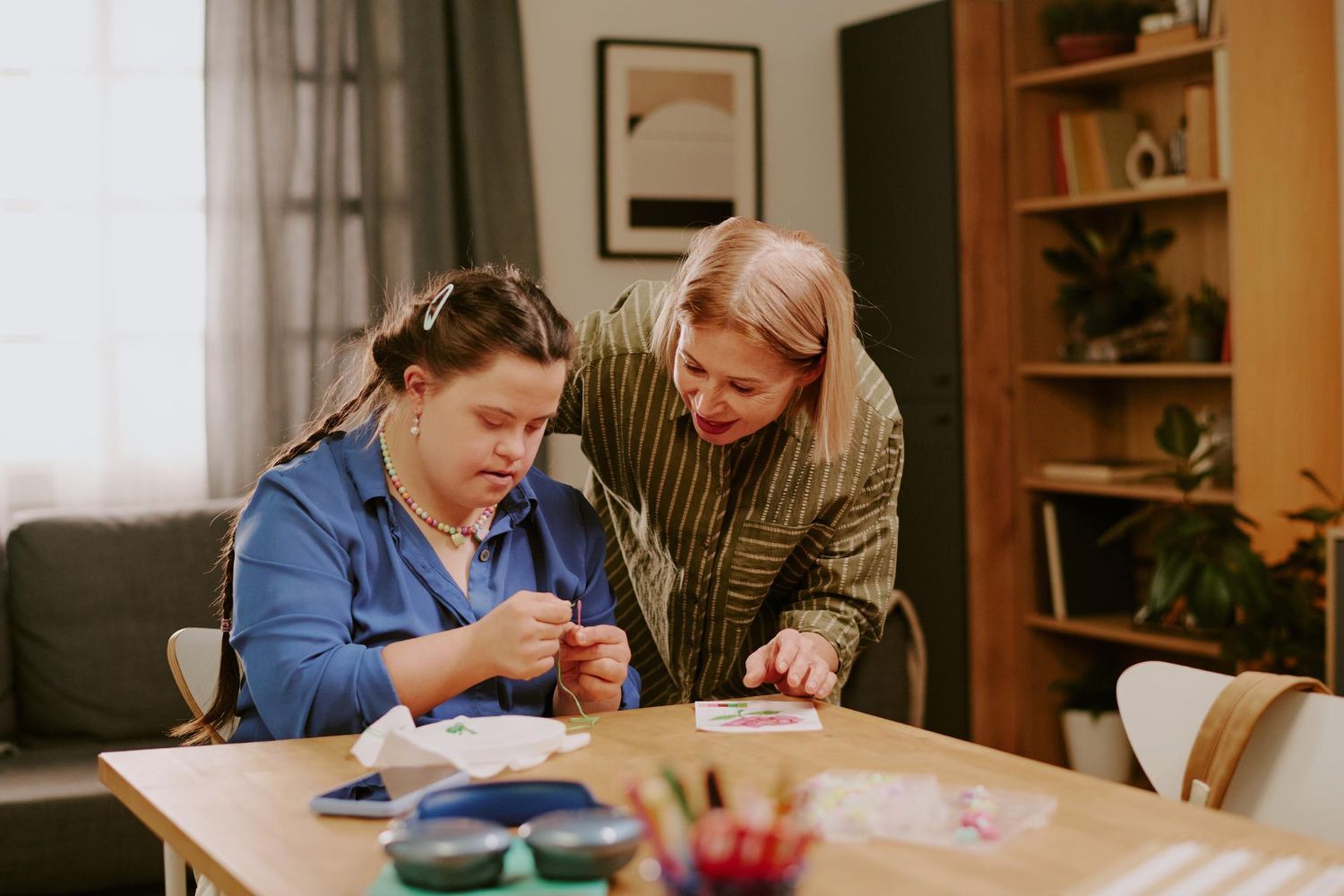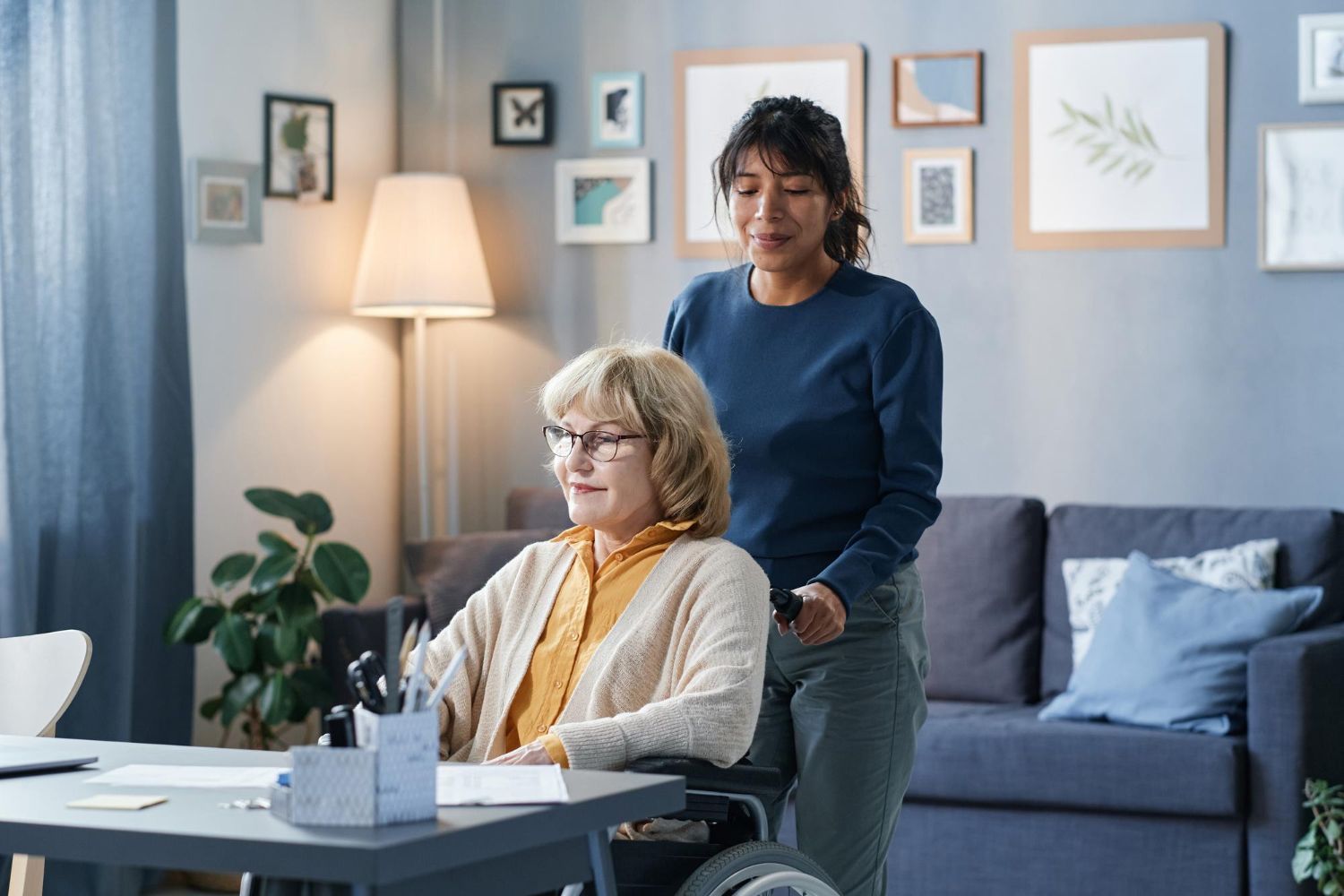Understanding Trauma-Informed Care in Home Support: What Families Should Know
In today’s aged care and disability support landscape, understanding and practising trauma-informed care is no longer optional—it’s essential. For individuals receiving in-home care, past traumas—whether from abuse, neglect, war, or medical experiences—can significantly shape how they respond to support workers, health routines, and daily interactions.
At AIM Care Support and Services, we believe that every person deserves care that is not only compassionate but also trauma-aware. In this blog, we unpack what trauma-informed care really means, why it’s crucial in home support settings, and how families can ensure their loved ones are receiving care that is both respectful and healing.
What Is Trauma-Informed Care?
Trauma-informed care is an approach to caregiving that recognises the presence and impact of trauma in a person’s life and responds in ways that promote healing and safety. It avoids re-traumatisation by creating a care environment that is emotionally, psychologically, and physically safe for the individual.
This approach does not require support workers to know every detail of someone’s traumatic history. Instead, it’s about shifting the mindset from asking, “What’s wrong with you?” to “What happened to you?”
Why Trauma-Informed Care Matters in Home Support
In-home care clients, particularly those in aged care and NDIS services, are often among the most vulnerable populations. They may have:
- Lived through institutional abuse or neglect
- Suffered from domestic violence or medical trauma
- Experienced cultural dislocation, especially among Indigenous or migrant populations
- Endured long periods of illness or disability that affected their autonomy
Without a trauma-informed approach, even routine caregiving activities like bathing, medication administration, or moving between rooms can trigger anxiety, fear, or distress.
The Core Principles of Trauma-Informed Care
A trauma-informed home support agency like AIM Care trains its staff to work under the following core principles:
1. Safety
Both physical and emotional safety are priorities. This includes understanding a client’s need for privacy, gentle touch, and clear communication.
2. Trustworthiness and Transparency
Clients are more likely to engage positively with caregivers who are consistent, reliable, and communicate openly about care processes.
3. Choice and Autonomy
Clients are encouraged to make decisions about their own care wherever possible. This empowers them and rebuilds a sense of control.
4. Collaboration
Care is not done to someone—it’s done with them. This builds trust and fosters a respectful dynamic between client and caregiver.
5. Empowerment
The focus is on an individual’s strengths and capabilities, not just their limitations.
Real-World Examples in In-Home Care
Trauma-informed care looks different for each client, but here are a few practical examples:
- A support worker might learn that a client who lived through war reacts badly to sudden loud noises. The worker ensures that the TV isn’t too loud and knocks gently on doors before entering.
- A nurse assisting with personal care might allow a client to guide the routine, offering choices and explaining each step to avoid triggering distress from past abuse.
- A culturally sensitive carer may recognise the significance of certain rituals or language in helping a CALD (Culturally and Linguistically Diverse) client feel at home and respected.
These subtle but important shifts in approach can significantly improve a client’s sense of safety, dignity, and well-being.
How AIM Care Supports Trauma-Informed Practice
At AIM Care Support and Services, trauma-informed care is not just a buzzword—it’s part of our culture. Our team receives regular training in:
- Recognising trauma symptoms and responses
- Communicating respectfully and clearly
- Supporting clients with emotional regulation strategies
- Understanding cultural, historical, and gender-based trauma
We also partner with family members and other healthcare professionals to ensure consistency in how care is delivered. If a client has known triggers or requires specific care routines, we document and incorporate that knowledge into their personalised care plan.
What Families Can Do
If you’re arranging in-home care for a loved one and are concerned about past trauma, here are a few steps you can take:
- Open communication: Let the care provider know of any relevant history or triggers (even if details are limited).
- Ask the right questions: Inquire whether carers are trained in trauma-informed practice and how they ensure emotional safety.
- Observe and evaluate: Watch how your loved one responds to carers. A trauma-informed worker should create a calm, respectful presence that reduces—not increases—stress.
- Advocate: If you see signs of distress, speak up. The right care provider will listen and adapt.
Moving Toward Compassionate, Trauma-Aware Care
Trauma-informed care is about more than just avoiding harm—it’s about actively fostering healing, dignity, and respect. In the intimate environment of in-home support, these values matter more than ever.
At AIM Care, we are committed to creating safe spaces for our clients—where their past is honoured, their choices are respected, and their future is supported with care.
Looking for trauma-informed in-home support across Queensland? Contact AIM Care Support and Services today to learn how we can help.











